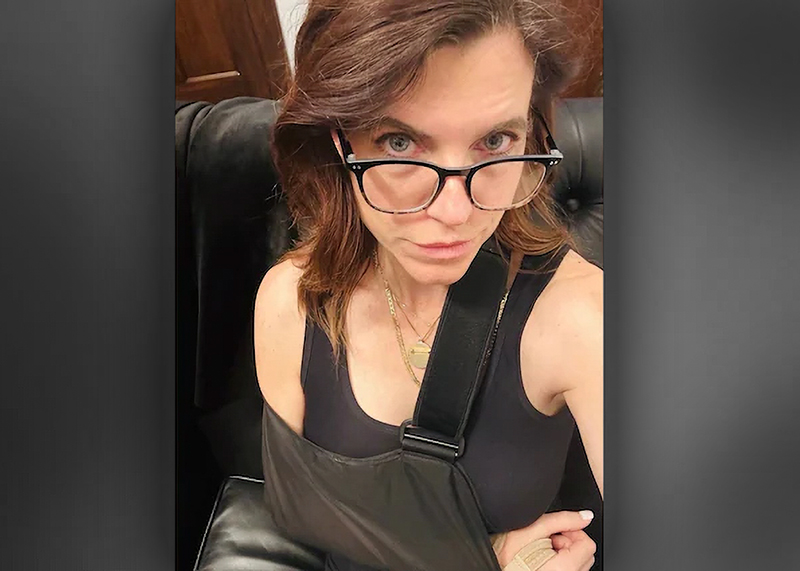Most Americans oppose foster care agencies discriminating against same-sex couples
Poll drops just as Supreme Court is about to hear oral arguments in case involving religiously-based refusals

A new poll finds that an overwhelming super-majority of Americans oppose allowing religiously-affiliated child placement agencies that receiver taxpayer funding to refuse to accept same-sex couples as foster or adoptive parents, just days before the Supreme Court will hear oral arguments on that very issue.
According to the Public Religion Research Institute, 70% of Americans said they do not support allowing foster care or adoption agencies to discriminate against prospective foster parents, including 31% who strongly oppose such an idea. By comparison, only 28% of Americans favor allowing such religious exemptions, with 11% strongly favoring it.
Bipartisan majorities oppose allowing agencies receiving taxpayer funds to refuse to accept qualified gay and lesbian couples as foster parents, including 83% of Democrats, 70% of independents, and 55% of Republicans.
Among religious groups, only white evangelical Protestants support such religious exemptions, with 53% in favor and 42% opposed. Majorities of other religious groups oppose such exemptions, including — most notably, 82% of white Catholics and 65% of Hispanic Catholics, with 41% and 42% of each of those groups, respectively, strongly opposing turning away same-sex couples.
Opposition is equally as high among non-Christians, 82% of whom oppose such exemptions, and religiously unaffiliated Americans, 80% of whom oppose them. Seventy percent of white mainline Protestants and 62% of Black Protestants also oppose religious exemptions in foster care placement.
The updated polling drops just two days before the U.S. Supreme Court is slated to hear the case of Fulton v. City of Philadelphia, in which Catholic Social Services is suing the city for requiring all child placement agencies with which it contracts to abide by the city’s nondiscrimination policy, which prohibits discrimination based on sexual orientation and gender identity.
CSS contends that it should be granted an exemption that allows the organizations to receive taxpayer dollars even as it refuses to place children in homes with same-sex couples or other prospective parents to whom it objects based on personal characteristics, such as religion, age, or marital status.
Related: A 6-3 Supreme Court could carve out various exemptions that erode LGBTQ rights
The implications of the court’s eventual decision, likely to be handed down in the spring, could potentially be far-reaching: if child placement agencies are allowed to discriminate, the decision would give carte blanche to other religiously-affiliated organizations that provide services — ranging from food banks to homeless shelters to medical care — that would also be allowed to deny services to LGBTQ people and others.
The case also approaches the court shortly after the confirmation of Amy Coney Barrett to the U.S. Supreme Court. Even though much has been made of Barrett and her fellow conservative justices’ Catholic faith — six of the justices, including 5 of the 6 conservatives on the court, are Catholic — it would appear that they may be in the minority, even among their fellow Catholics, when it comes to religious exemptions.
“Discrimination should have no place in our country, and no place in taxpayer-funded programs — and an overwhelming majority of our country agrees,” Leslie Cooper, the deputy director of the American Civil Liberties Union’s LGBT & HIV Project, said in a statement. “But discrimination does still happen, which is why it is important that the Supreme Court should not undermine our nondiscrimination laws and our government’s ability to enforce nondiscrimination provisions in government contracts.”
Read more:
Arkansas gay couple verbally attacked while applying for marriage license
Georgia transgender sheriff’s deputy can sue for health care denial, court says
Michigan Army National Guard specialist sues state to challenge transgender military ban
Support Metro Weekly’s Journalism
These are challenging times for news organizations. And yet it’s crucial we stay active and provide vital resources and information to both our local readers and the world. So won’t you please take a moment and consider supporting Metro Weekly with a membership? For as little as $5 a month, you can help ensure Metro Weekly magazine and MetroWeekly.com remain free, viable resources as we provide the best, most diverse, culturally-resonant LGBTQ coverage in both the D.C. region and around the world. Memberships come with exclusive perks and discounts, your own personal digital delivery of each week’s magazine (and an archive), access to our Member's Lounge when it launches this fall, and exclusive members-only items like Metro Weekly Membership Mugs and Tote Bags! Check out all our membership levels here and please join us today!























You must be logged in to post a comment.